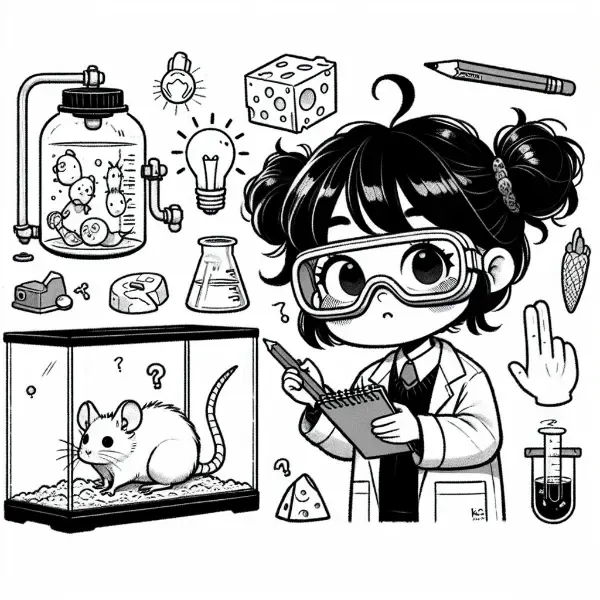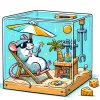Running experiments with the Skinner box

Rea,
I heard you’re learning about experiment design and observations in science class. That’s exciting, and it reminds me of yesterday’s letter about B.F. Skinner and his famous Skinner box. You see, the Skinner box was actually a brilliant setup for running experiments, providing a controlled environment where Skinner could limit what the animal saw and what reward they would get for pressing the lever.
Initially, it was straightforward: every time a pigeon pecked the lever, it would get a food pellet. But Skinner learned something interesting. He discovered that the timing and frequency of rewards could dramatically affect behavior. This led him to design some neat experiments.
One approach he tried was called “fixed-ratio” reinforcement. Imagine if you got to do something fun or read a book every time you finished your class assignment. That’s a fixed ratio - the reward comes consistently after some actions.
Then he tried “variable-ratio” reinforcement. This is more like the Buddy Bucks at HEB. You put in coupons, but you’re not sure which one (if any) will give you a prize. It’s random, but there’s always a chance of a reward.
Here’s where it gets really interesting: Skinner found that the variable-ratio approach often led to more consistent behavior. Animals (and people) tend to keep trying longer when the reward is unpredictable. It’s a bit like why you enjoy Mario - you never know when a Piranha Plant might pop out of a pipe!
Now, I have a challenge for you. Imagine you could design your own experiment using a Skinner box. What would you want to test? Maybe you could explore if animals learn faster with sounds or lights as cues? Or perhaps you could investigate if they prefer certain types of rewards over others?
What would your hypothesis be? Remember, a good hypothesis is a prediction you can test. For example: “Rats will press a lever more often for cheese rewards than for vegetable rewards.”
Thinking about these questions is a great way to understand how scientists design experiments. It’s not just about getting results - it’s about asking the right questions and figuring out how to answer them.
I’m excited to hear what kind of experiment you might come up with.
Love, Abba

